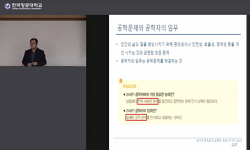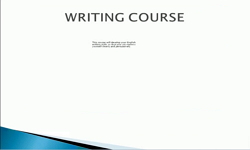This study is to describe the nature of planning as a cognitive writing process in L2 writing. It aims to examine how Korean EFL learners generate ideas and organize them. It also investigates the relationship between planning and the final product. G...
http://chineseinput.net/에서 pinyin(병음)방식으로 중국어를 변환할 수 있습니다.
변환된 중국어를 복사하여 사용하시면 됩니다.
- 中文 을 입력하시려면 zhongwen을 입력하시고 space를누르시면됩니다.
- 北京 을 입력하시려면 beijing을 입력하시고 space를 누르시면 됩니다.
부가정보
다국어 초록 (Multilingual Abstract)
This study is to describe the nature of planning as a cognitive writing process in L2 writing. It aims to examine how Korean EFL learners generate ideas and organize them. It also investigates the relationship between planning and the final product. Given a worksheet for planning, 39 university students were asked to write an argumentative essay during class. Based on their planning notes, five brainstorming types were identified: using the prompt/writing the position, mini-outlining, listing, mind mapping and free writing (in the order of frequency). In addition, the dominant use of L1 was found both in the brainstorming and the outlining. It was found that there was no statistically significant correlation between the amount of brainstorming and the quantity and quality of L2 writing. Only the amount of brainstorming in L2 had a statically significant correlation with the quantity of L2 writing (but not with the quality of L2 writing). In the case of outlining, a statistically significant correlation was found between its amount and the quantity of L2 writing. However, no statistically significant correlation was found between the amount of outlining and the L2 writing quality.
목차 (Table of Contents)
- Abstract
- I. 서론
- II. 이론적 배경 및 선행 연구
- 1. 쓰기 하위과정으로서의 쓰기계획의 성격
- 2. L2 쓰기 과정 중 쓰기계획에서의 L1의 사용
- Abstract
- I. 서론
- II. 이론적 배경 및 선행 연구
- 1. 쓰기 하위과정으로서의 쓰기계획의 성격
- 2. L2 쓰기 과정 중 쓰기계획에서의 L1의 사용
- 3. 쓰기계획과 작문의 관계
- III. 연구 방법
- 1. 연구 참여자
- 2. 연구 절차
- 3. 연구 분석
- IV. 연구 결과 및 논의
- 1. 브레인스토밍의 성격
- 2. 아웃라인의 성격
- V. 결론 및 제언
- 참고문헌
- 부록
참고문헌 (Reference)
1 Beare, S., "Writing and cognition:Research and applications" Elsevier 151-161, 2007
2 Knutson, E. M., "Thinking in English, writing in French" 80 (80): 88-109, 2006
3 Kellogg, R. T., "The science of writing: Theories, methods, individual differences, and applications" Routledge 57-72, 1996
4 Hayes, J. R., "The science of writing: Theories, methods, individual differences, and applications" Routledge 29-56, 1996
5 Tabari, M. A., "The effects of planning time on complexity, accuracy, fluency, and lexical variety in L2 descriptive writing" 1 (1): 1-15, 2016
6 Ellis, R., "The effects of planning on fluency, complexity, and accuracy in second language narrative writing" 26 : 59-84, 2004
7 Ghavamnia, M., "The effect of pre-task and online planning conditions on complexity, accuracy, and fluency on EFL learners’ written production" 20 : 31-43, 2013
8 Johnson, M. D., "The effect of planning sub-processes on L2 writing fluency, grammatical complexity, and lexical complexity" 21 : 264-282, 2012
9 Macaro, E., "Teaching and learning a second language: A review of recent research" Continuum 2003
10 Adams, R., "Task-based language learning: Insights to and from writing" John Benjamins 137-161, 2014
1 Beare, S., "Writing and cognition:Research and applications" Elsevier 151-161, 2007
2 Knutson, E. M., "Thinking in English, writing in French" 80 (80): 88-109, 2006
3 Kellogg, R. T., "The science of writing: Theories, methods, individual differences, and applications" Routledge 57-72, 1996
4 Hayes, J. R., "The science of writing: Theories, methods, individual differences, and applications" Routledge 29-56, 1996
5 Tabari, M. A., "The effects of planning time on complexity, accuracy, fluency, and lexical variety in L2 descriptive writing" 1 (1): 1-15, 2016
6 Ellis, R., "The effects of planning on fluency, complexity, and accuracy in second language narrative writing" 26 : 59-84, 2004
7 Ghavamnia, M., "The effect of pre-task and online planning conditions on complexity, accuracy, and fluency on EFL learners’ written production" 20 : 31-43, 2013
8 Johnson, M. D., "The effect of planning sub-processes on L2 writing fluency, grammatical complexity, and lexical complexity" 21 : 264-282, 2012
9 Macaro, E., "Teaching and learning a second language: A review of recent research" Continuum 2003
10 Adams, R., "Task-based language learning: Insights to and from writing" John Benjamins 137-161, 2014
11 Wang, L., "Switching to first language among writers with differing secondlanguage proficiency" 12 : 347-375, 2003
12 Krapels, A. R., "Second language writing: Research insights for the classroom" Cambridge University Press 37-56, 1990
13 Cohen, A. D., "Research on direct versus translated writing : Students’ strategies and their results" 85 : 169-188, 2001
14 Spivey, N. N., "Readers as writers composing from sources" 24 : 7-26, 1989
15 Baer, G., "Prewriting"
16 Miller, G. A., "Plans and the structure of behavior" Henry Holt and Company 1960
17 허명혜, "Mediation Through the First Language During the Second Language Writing: A Sociocultural Approach" 한국영어교육학회 68 (68): 69-84, 2013
18 Woodall, B. R., "Language-switching : Using the first language while writing in a second" 11 : 7-28, 2002
19 Wang, W., "L1 use in the L2 composing process : An exploratory study of 16 Chinese EFL writers" 11 : 225-246, 2002
20 Weijen, D., "L1 use during L2writing : An empirical study of a complex phenomenon" 18 : 235-250, 2009
21 Wolfersberger, M., "L1 to L2 writing process and strategy transfer: A look at lower proficiency writers" 7 (7): 2003
22 최연희, "L1 Use in L2 Writing Process of Korean EFL Students" 한국영어교육학회 61 (61): 205-225, 2006
23 Sasaki, M., "Explanatory variables for EFL students’expository writing" 46 (46): 137-168, 1996
24 Nelson, J., "Examining the practices that shape student writing: Two studies of college freshmen writing across the disciplines" Carnegie Mellon University 1988
25 Ong, J., "Effects of the manipulation of cognitive processes on EFL writers’ text quality" 47 (47): 375-398, 2013
26 Ong, J., "Effects of task complexity on the fluency and lexical complexity in EFL students’ argumentative writing" 19 : 218-233, 2010
27 Johnson, M. D., "Does planning really help? : Effectiveness of planning in L2writing" 3 (3): 107-118, 2014
28 Spivey, N. N., "Discourse synthesis: Constructing texts in reading and writing" International Reading Association 1984
29 Carey, L., "Differences in writers’ initial task representations" Center for the Study of Writing, University of California at Berkeley and Carnegie Mellon University 1989
30 Beare, S., "Differences in content generating and planning processes of adult L1 and L2 proficient writers" University of Ottawa 2000
31 양은미, "Degrees of Preference for Writing and L1 Use Behaviors of L2 Writers" 현대영어교육학회 8 (8): 243-269, 2007
32 Ojima, M., "Concept mapping a pre-task planning : A case study of three Japanese ESL writers" 34 (34): 566-585, 2006
33 Skehan, P., "Cognition and second language instruction" Cambridge University Press 183-205, 2001
34 Qi, D. S., "An inquiry into language-switching in second language composing" 54 : 413-435, 1998
35 Sasaki, M., "A multiple-data analysis of the 3.5-year development of EFL student writers" 54 : 525-582, 2004
36 Skehan, P., "A cognitive approach to language learning" Oxford University Press 1998
37 신상근, "A Construct Validation Study of Timed Essay Tests" 한국외국어교육학회 12 (12): 1-22, 2005
동일학술지(권/호) 다른 논문
-
The Effects of Negotiated Written Corrective Feedback on L2 Accuracy Development
- 한국외국어교육학회
- Ji Hyun Kim
- 2019
- KCI등재
-
- 한국외국어교육학회
- Jeung Deok Kim
- 2019
- KCI등재
-
- 한국외국어교육학회
- KookJeong Park
- 2019
- KCI등재
-
Analysis of the Collaborative Reflection Processes of Two University Instructors.
- 한국외국어교육학회
- YunJin Kim
- 2019
- KCI등재
분석정보
인용정보 인용지수 설명보기
학술지 이력
| 연월일 | 이력구분 | 이력상세 | 등재구분 |
|---|---|---|---|
| 2027 | 평가예정 | 재인증평가 신청대상 (재인증) | |
| 2021-01-01 | 평가 | 등재학술지 유지 (재인증) |  |
| 2018-01-01 | 평가 | 등재학술지 유지 (등재유지) |  |
| 2015-01-01 | 평가 | 등재학술지 유지 (등재유지) |  |
| 2011-01-01 | 평가 | 등재학술지 유지 (등재유지) |  |
| 2009-01-01 | 평가 | 등재학술지 유지 (등재유지) |  |
| 2007-01-01 | 평가 | 등재학술지 유지 (등재유지) |  |
| 2005-01-01 | 평가 | 등재학술지 유지 (등재유지) |  |
| 2002-01-01 | 평가 | 등재학술지 선정 (등재후보2차) |  |
| 1999-07-01 | 평가 | 등재후보학술지 선정 (신규평가) |  |
학술지 인용정보
| 기준연도 | WOS-KCI 통합IF(2년) | KCIF(2년) | KCIF(3년) |
|---|---|---|---|
| 2016 | 0.74 | 0.74 | 0.74 |
| KCIF(4년) | KCIF(5년) | 중심성지수(3년) | 즉시성지수 |
| 0.76 | 0.74 | 1.149 | 0.11 |





 스콜라
스콜라







